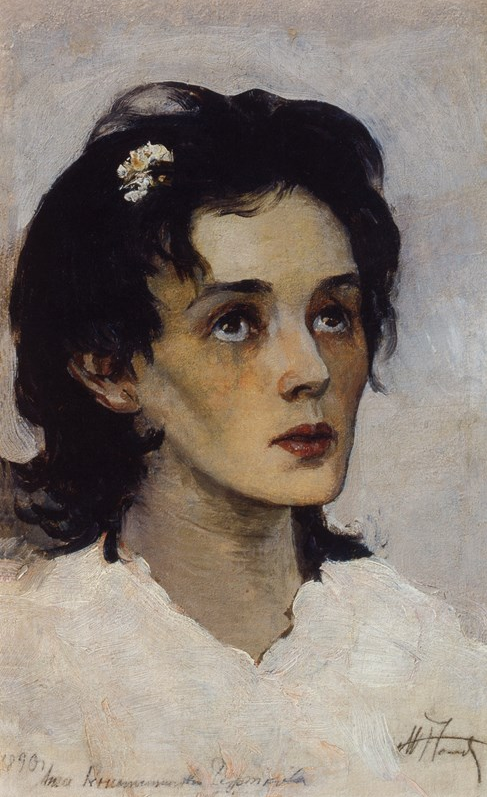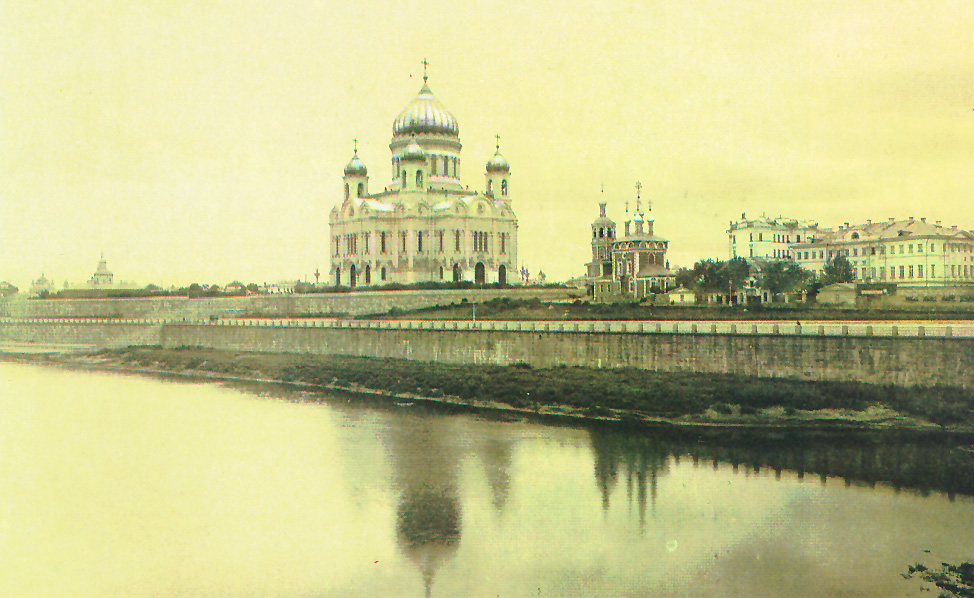|
United Council Of Religious Communities And Groups
The United Council of Religious Communities and Groups (russian: Объединенный совет религиозных общин и групп), also known as OSROG, was a committee of representatives of various minority religious movements within the Russian SFSR created in 1918 by Vladimir Chertkov. In January 1919, the Council received an official role as a decree of the Council of People's Commissars charged it with the task of evaluating claims of conscientious objection to the revolutionary government's conscription Conscription (also called the draft in the United States) is the state-mandated enlistment of people in a national service, mainly a military service. Conscription dates back to antiquity and it continues in some countries to the present day un ... regime. However, the decree always had opposition within the Soviet hierarchy (its publication was delayed by nearly five months), and other decrees and rulings from late 1920 onwards steadily restricted its ... [...More Info...] [...Related Items...] OR: [Wikipedia] [Google] [Baidu] |
Russian SFSR
The Russian Soviet Federative Socialist Republic, Russian SFSR or RSFSR ( rus, Российская Советская Федеративная Социалистическая Республика, Rossíyskaya Sovétskaya Federatívnaya Socialistíčeskaya Respúblika, rɐˈsʲijskəjə sɐˈvʲetskəjə fʲɪdʲɪrɐˈtʲivnəjə sətsɨəlʲɪˈsʲtʲitɕɪskəjə rʲɪˈspublʲɪkə, Ru-Российская Советская Федеративная Социалистическая Республика.ogg), previously known as the Russian Soviet Republic and the Russian Socialist Federative Soviet Republic as well as being unofficially known as Soviet Russia,Declaration of Rights of the laboring and exploited people, article I. the Russian Federation or simply Russia, was an Independence, independent Federalism, federal socialist state from 1917 to 1922, and afterwards the largest and most populous of the Republics of the Soviet Union, Soviet socialist republics of the So ... [...More Info...] [...Related Items...] OR: [Wikipedia] [Google] [Baidu] |
Vladimir Chertkov
Vladimir Grigoryevich Chertkov (russian: Влади́мир Григо́рьевич Чертко́в; also transliterated as Chertkoff, Tchertkoff, or Tschertkow ( – November 9, 1936) was the editor of the works of Leo Tolstoy, and one of the most prominent Tolstoyans. After the revolutions of 1917, Chertkov was instrumental in creating the United Council of Religious Communities and Groups, which eventually came to administer the Russian SFSR's conscientious objection program. Life and career Family and childhood Chertkov was born in 1854 in St. Petersburg, Russia into a wealthy and aristocratic family. His mother (to whom he felt especially close), Elizaveta Ivanovna, born Countess Chernysheva-Kruglikova, was known among her circle in St. Petersburg society for her beauty, intellect, authoritativeness and tact. His father, Grigorii Ivanovich, was aide-de-camp under Nikolai I, Adjutant-General under Alexander II and Alexander III, known in military circles for his front-li ... [...More Info...] [...Related Items...] OR: [Wikipedia] [Google] [Baidu] |
Council Of People's Commissars
The Councils of People's Commissars (SNK; russian: Совет народных комиссаров (СНК), ''Sovet narodnykh kommissarov''), commonly known as the ''Sovnarkom'' (Совнарком), were the highest executive authorities of the Russian Soviet Federative Socialist Republic (RSFSR), the Soviet Union (USSR), and the Soviet republics from 1917 to 1946. The Sovnarkom of the RSFSR was founded in the Russian Republic soon after the October Revolution in 1917 and its role was formalized in the 1918 Constitution of the RSFSR to be responsible to the Congress of Soviets of the RSFSR for the "general administration of the affairs of the state". Unlike its predecessor the Russian Provisional Government which had representatives of various political parties, the Sovnarkom was a government of a single party, the Bolsheviks. The Sovnarkom of the USSR and Congress of Soviets of the USSR founded in 1922 were modelled on the RSFSR system, and identical Sovnarkom bodies we ... [...More Info...] [...Related Items...] OR: [Wikipedia] [Google] [Baidu] |
Conscientious Objector
A conscientious objector (often shortened to conchie) is an "individual who has claimed the right to refuse to perform military service" on the grounds of freedom of thought, conscience, or religion. The term has also been extended to objecting to working for the military–industrial complex due to a crisis of conscience. In some countries, conscientious objectors are assigned to an alternative civilian service as a substitute for conscription or military service. A number of organizations around the world celebrate the principle on May 15 as International Conscientious Objection Day. On March 8, 1995, the United Nations Commission on Human Rights resolution 1995/83 stated that "persons performing military service should not be excluded from the right to have conscientious objections to military service". This was re-affirmed on April 22, 1998, when resolution 1998/77 recognized that "persons lreadyperforming military service may ''develop'' conscientious objections". H ... [...More Info...] [...Related Items...] OR: [Wikipedia] [Google] [Baidu] |
Conscription
Conscription (also called the draft in the United States) is the state-mandated enlistment of people in a national service, mainly a military service. Conscription dates back to antiquity and it continues in some countries to the present day under various names. The modern system of near-universal national conscription for young men dates to the French Revolution in the 1790s, where it became the basis of a very large and powerful military. Most European nations later copied the system in peacetime, so that men at a certain age would serve 1–8 years on active duty and then transfer to the reserve force. Conscription is controversial for a range of reasons, including conscientious objection to military engagements on religious or philosophical grounds; political objection, for example to service for a disliked government or unpopular war; sexism, in that historically men have been subject to the draft in the most cases; and ideological objection, for example, to a perceived vio ... [...More Info...] [...Related Items...] OR: [Wikipedia] [Google] [Baidu] |
Indiana University Press
Indiana University Press, also known as IU Press, is an academic publisher founded in 1950 at Indiana University that specializes in the humanities and social sciences. Its headquarters are located in Bloomington, Indiana. IU Press publishes 140 new books annually, in addition to 39 academic journals, and maintains a current catalog comprising some 2,000 titles. Indiana University Press primarily publishes in the following areas: African, African American, Asian, cultural, Jewish, Holocaust, Middle Eastern studies, Russian and Eastern European, and women's and gender studies; anthropology, film studies, folklore, history, bioethics, music, paleontology, philanthropy, philosophy, and religion. IU Press undertakes extensive regional publishing under its Quarry Books imprint. History IU Press began in 1950 as part of Indiana University's post-war growth under President Herman B Wells. Bernard Perry, son of Harvard philosophy professor Ralph Barton Perry, served as the first d ... [...More Info...] [...Related Items...] OR: [Wikipedia] [Google] [Baidu] |
Union Of Evangelical Christians-Baptists Of Russia
The Russian Union of Evangelical Christians-Baptists, RUECB (russian: Росси́йский сою́з ева́нгельских христиа́н-бапти́стов, РСЕХБ) is a Baptist Christian denomination in Russia. It is affiliated with the Baptist World Alliance. The headquarters is in Moscow. History The union has its origins in an Evangelical group in 1867 and its leader Nikita Isaevich Voronin who was baptized in the Kura river in Tbilisi, Caucasus, in present-day Georgia. German Mennonites in Ukraine and Lutherans in the Baltic coast started a revival that became known as " Stundist", which led to the formation of churches composed of baptized adult believers. Vasily Pashkov, a retired army colonel in St Petersburg, introduced the evangelical message in the upper classes in the city, adhering to the principles of the Plymouth Brethren and later would emerge in the Union of the Evangelical Christians in All-Russia. Soviet era After coming to power, the Sovi ... [...More Info...] [...Related Items...] OR: [Wikipedia] [Google] [Baidu] |
Religion In The Soviet Union
The Soviet Union was established by the Bolsheviks in 1922, in place of the Russian Empire. At the time of the 1917 Revolution, the Russian Orthodox Church was deeply integrated into the autocratic state, enjoying official status. This was a significant factor that contributed to the Bolshevik attitude to religion and the steps they took to control it. Thus the USSR became the first state to have as one objective of its official ideology the elimination of existing religion, and the prevention of future implanting of religious belief, with the goal of establishing state atheism (''gosateizm''). Under the doctrine of state atheism in the Soviet Union, there was a "government-sponsored program of conversion to atheism" conducted by Communists. The Communist government targeted religions based on State interests, and while most organized religions were never outlawed, religious property was confiscated, believers were harassed, and religion was ridiculed while atheism was propagate ... [...More Info...] [...Related Items...] OR: [Wikipedia] [Google] [Baidu] |
Religious Organizations Established In 1918
Religion is usually defined as a social- cultural system of designated behaviors and practices, morals, beliefs, worldviews, texts, sanctified places, prophecies, ethics, or organizations, that generally relates humanity to supernatural, transcendental, and spiritual elements; however, there is no scholarly consensus over what precisely constitutes a religion. Different religions may or may not contain various elements ranging from the divine, sacred things, faith,Tillich, P. (1957) ''Dynamics of faith''. Harper Perennial; (p. 1). a supernatural being or supernatural beings or "some sort of ultimacy and transcendence that will provide norms and power for the rest of life". Religious practices may include rituals, sermons, commemoration or veneration (of deities or saints), sacrifices, festivals, feasts, trances, initiations, funerary services, matrimonial services, meditation, prayer, music, art, dance, public service, or other aspects of human culture ... [...More Info...] [...Related Items...] OR: [Wikipedia] [Google] [Baidu] |




